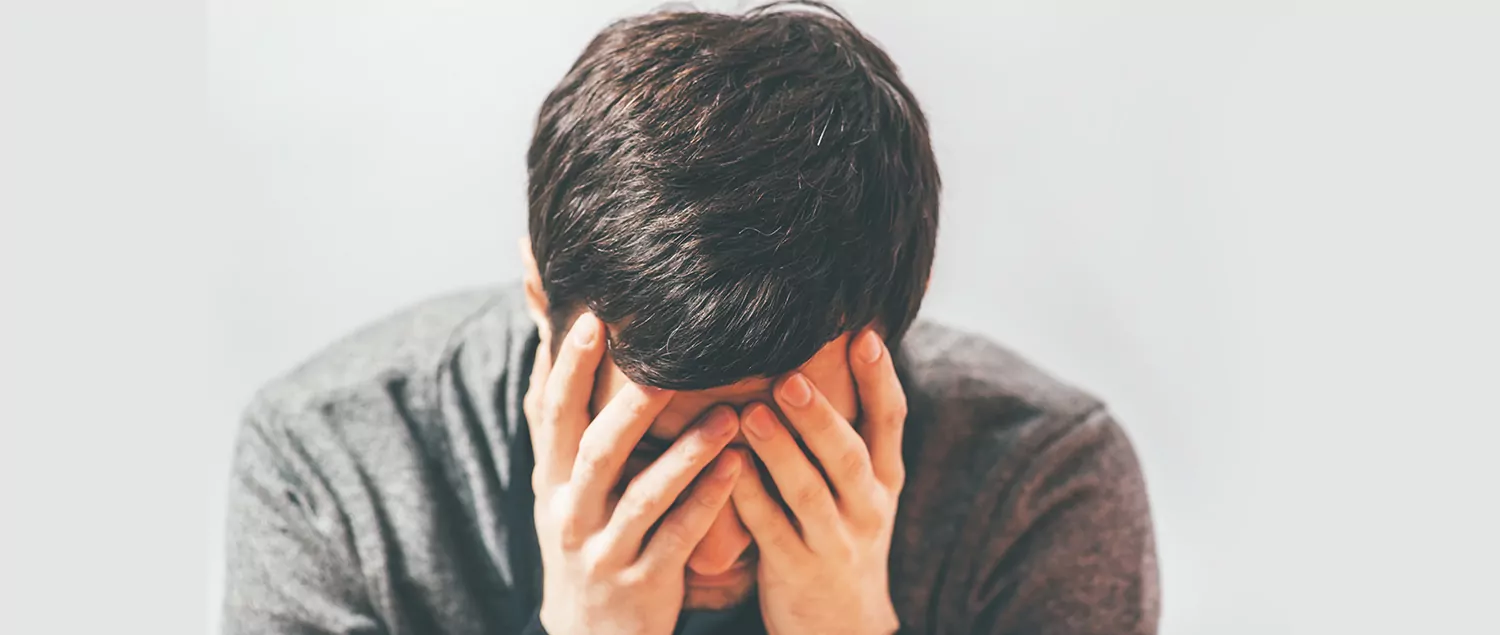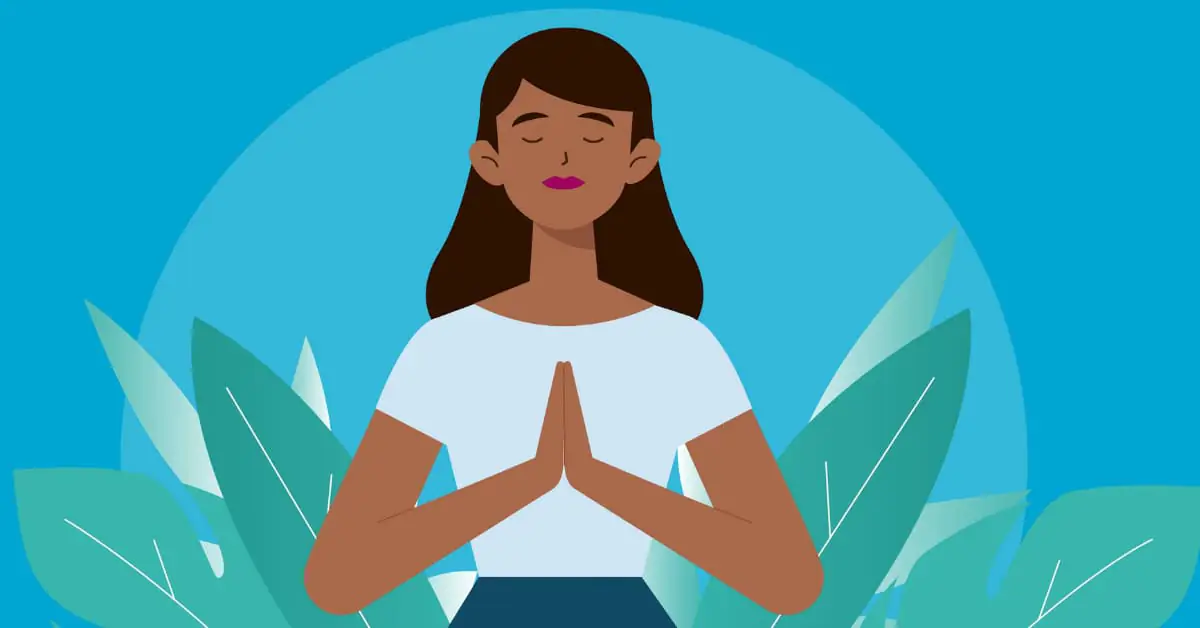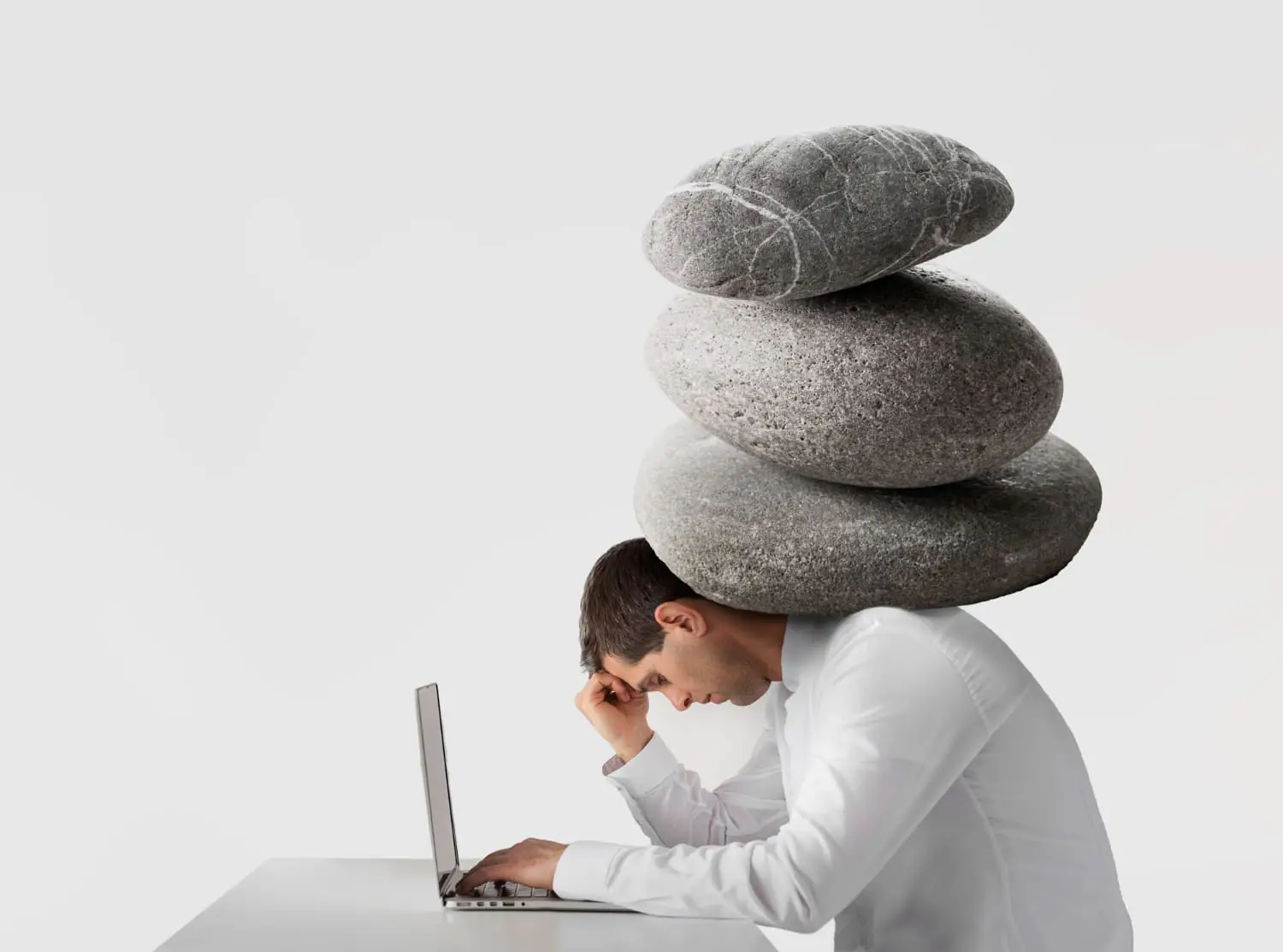What Causes Dizziness? and what is good for you?
Dizziness is described as the inability to perceive one’s position in space and the feeling that one or the surroundings are spinning. It is a common problem. Dizziness makes a person feel dizzy, confused. Many different factors can cause these symptoms, such as anxiety or a reaction to medication. However, dizziness can be a symptom of an underlying medical problem. This can be associated with many causes related to the inner ear, eye, nervous system or blood circulation. Dizziness often creates an uncomfortable feeling and can negatively affect daily activities. This symptom can occur when a person moves or changes head position and is often triggered by sudden head movements. Dizziness is a symptom that needs to be evaluated by a doctor because identifying the underlying causes is critical to establishing a proper treatment plan.
What is Dizziness?
It is a feeling of dizziness, lightheadedness and unsteadiness. Depending on the underlying cause, it may develop as continuous or sudden dizziness. Because it is linked to the sensory organs, especially the eyes and ears, it can cause fainting in some cases. Dizziness is a common condition and occasional dizziness may not be a cause for concern. However, dizziness requires a medical check-up to determine the underlying cause. The most common causes include ear infections, balance disorders and neurological causes. Dizziness can significantly affect a person’s daily life. The person may have difficulty walking, maintaining balance or even sitting up. Dizziness can also cause other symptoms such as nausea, vomiting and headache.
Is Every Dizziness Vertigo?
Not all dizziness is caused by vertigo. This is because dizziness covers a broad spectrum. Although the feelings it creates in people are similar, there are some differences. Vertigo is usually characterized by a feeling that the environment is spinning or moving. It can often originate from the balance organs in the inner ear. However, dizziness is a general term and can range from mild lightheadedness to a feeling of unsteadiness.

What Causes Dizziness?
Dizziness can occur for many different reasons. The most common underlying cause is insufficient blood supply to the brain. The most common causes of dizziness are the following:
- Disorders of the Inner Ear (Vestibular migraine, fluid imbalances in the inner ear, benign paroxysmal positional vertigo (BPPV))
- Neurological Problems (Meniere’s disease, increased fluid in the inner ear, ear nerve tumors)
- Brain diseases (Brain Tumors, Stroke etc.)
- Blood Circulation Problems (Low blood pressure, anemia, etc.)
- Psychological Factors (Anxiety, stress, panic attacks etc.)
- Other diseases (dehydration, low blood sugar, low blood pressure and some medications)
In some cases, chest pain, heart palpitations, loss of speech, changes in vision or dizziness with other symptoms may occur. These can be life-threatening conditions with serious complications and require urgent medical attention. Some of these disorders include:
- Heart problems such as heart attack or abnormal heartbeat
- Paralysis
- Bleeding inside the body
- Shock (extreme drop in blood pressure)
Why does dizziness occur when standing up?
Dizziness when standing up is a common symptom that can occur for many different reasons. In particular, this can be caused by sudden changes in blood pressure, problems with the balance organs in the inner ear or problems with the circulatory system. Factors such as dehydration, low blood sugar, heart problems or medication side effects can also cause dizziness when standing up. When a person stands up, they experience a rapid drop in blood pressure, which can cause sudden dizziness. Although dizziness when standing up is common, it is usually temporary and requires a medical check-up to determine the underlying cause.
Why does the head turn when lying down?
One of the most common causes of this condition is a balance disorder known as vertigo. Vertigo is caused by the movement of calcium crystals in the inner ear. These crystals move when a person turns their head into certain positions and the displacement of the crystals causes dizziness. In addition, another factor that causes dizziness while lying down is a disturbed fluid balance in the inner ear. In this case, when lying down or when the head position changes, the fluid of the inner ear can move abnormally, which can lead to dizziness. online health
What are the Symptoms of Dizziness?
People who experience dizziness may experience dizziness with different symptoms. Common symptoms include:
- Vertigo (spinning sensation): Dizziness is usually characterized by a feeling that the environment feels like it is spinning. This sensation can occur even when the person is not moving.
- Unsteadiness and Dizziness: During dizziness, a person may feel unstable. It is difficult to stand and walk.
- Nausea and Vomiting: If dizziness is severe, it may be accompanied by stomach problems such as nausea and vomiting.
- Hearing Loss or Tinnitus: Dizziness, hearing loss or tinnitus may occur together due to problems with the inner ear.
- Headache Migraine or other types of headache can occur together with dizziness.
- Vision Problems Blackouts, double vision or focusing problems are some of the conditions that can be encountered during dizziness.
- Cold sweat and pallor: During dizziness, the body may experience cold sweat, pallor or fainting.
When Does Dizziness Start During Pregnancy?
Dizziness during pregnancy usually starts in the first trimester and decreases in the second trimester. However, some women may also experience dizziness in the last trimester of pregnancy. However, this may vary from person to person as people have different general health conditions. Some expectant mothers may not experience dizziness. Physiological factors such as changes in hormone levels, increased blood volume and low blood sugar can contribute to dizziness. In the later stages of pregnancy, especially as the uterus grows, factors such as changes in blood pressure or the body producing more blood can also cause dizziness.
What is Good for Dizziness and Nausea?
Dizziness and nausea is a common problem that can be caused by many different reasons. The underlying cause must first be identified and treated by a doctor. Here are some natural methods that can be applied at home under the supervision of a doctor:
- Rest and Move Slowly. Avoiding sudden movements, lying down, breathing deeply can help prevent dizziness and nausea.
- Fluid Consumption: Adequate fluid consumption protects the body from dehydration and helps keep blood pressure in balance.
- Herbal Supplements: Since people have different allergic structures, some natural supplements are useful in reducing symptoms with the approval of a doctor. Chamomile tea can help relieve dizziness and nausea with its calming and relaxing effect. Drinking fresh ginger tea can reduce nausea and soothe the digestive system. Peppermint tea can also relieve nausea and give a feeling of freshness.
How to Treat Dizziness?
The most important factor in the treatment process is the correct diagnosis. Inner ear problems, such as vertigo, can be treated by a specialist doctor with special maneuvers or physiotherapy to correct the position of calcium crystals. Medication can be used for conditions such as fluid imbalances in the inner ear or vestibular migraine. If systemic problems such as anemia or low blood sugar cause dizziness, these conditions can be corrected with a proper diet and supplements. In case of hypotension (low blood pressure), it may be recommended to increase fluid and salt intake. For dizziness caused by stress or anxiety, relaxation techniques, meditation or psychotherapy may be helpful. Dizziness requires medical attention as it can lead to serious complications depending on the underlying cause.
What is good for dizziness?
”What is good for dizziness? How does dizziness go away?” are among the important questions that people with dizziness frequently encounter in their search for treatment. Dizziness is a symptom that can occur for many different reasons. Depending on the underlying causes, some methods that can be applied under the control of a doctor against dizziness include the following:
- Inner Ear Problems: In vertigo-related disorders, special maneuvers can be applied to correct the balance crystals in the inner ear. With the Epley Maneuver, the doctor moves the patient’s head in different positions in a specific sequence, thus reorganizing the crystalline content of the inner ear.
- Adequate Fluid Intake: One of the main causes of dizziness is dehydration. Adequate fluid intake can help relieve dizziness.
- Stress or Anxiety: Deep breathing techniques can be applied to relieve stress-induced dizziness.
- Low Blood Pressure: In case of low blood pressure, increasing salt and fluid intake can help.
- Anemia In case of anemia, it may be helpful to increase iron-containing foods or use iron supplements.
- Diabetes (Low Blood Sugar): It is important to eat a regular and balanced diet to prevent dizziness due to low blood sugar.
- Vertebral Artery Dissection: Limiting neck movements and doing relaxing exercises under the supervision of a doctor can alleviate vertebral artery dissection.

What to do if the head is spinning?
“What to do in case of sudden dizziness? What to do at home in case of dizziness” is one of the important questions for people who are looking for treatment support methods that can be applied in case of dizziness. In case of dizziness or lightheadedness, the following methods may be useful:
- If you feel dizzy, stop what you are doing and sit or lie down until the dizziness subsides.
- If you feel faint, it may be helpful to lie flat. This position can help blood to reach the brain quickly.
- Positions should be changed slowly, especially when standing up after lying down. It may be helpful to sit for a few minutes before standing up.
- Sudden and rapid head movements should be avoided.
- It is necessary to hold on to the railings when going up and down stairs.
- Avoid using dangerous equipment or machinery when dizzy.
- Bright lights and television should be avoided. These devices and lights can increase symptoms.
Frequently Asked Questions
Dizziness is a condition that can leave people in dangerous situations in daily life and cause serious discomfort. Delay in diagnosis and treatment can exacerbate the symptoms of underlying diseases.
Why does the head spin for no reason?
Sudden dizziness can often occur due to factors such as disorders of the inner ear, low blood pressure or sudden changes in position. An imbalance of fluid in the inner ear can send false signals to the brain, causing a feeling of imbalance.
Which Organ Causes Dizziness?
Dizziness is usually caused by the balance organs in the inner ear. The balance organs in the inner ear sense the position and movement of the body. Fluid imbalances in the inner ear can cause signals from these organs to be abnormal and cause a feeling of dizziness.
What is a constant feeling of dizziness?
The symptom “I feel dizzy all the time” can often be caused by disorders of the balance organs in the inner ear, such as vertigo. It can also be caused by factors such as nervous system problems, low blood pressure or anxiety.
Dizziness is a condition that causes serious discomfort in people’s daily lives and involves serious risks at the time of discomfort. Symptoms can be controlled by identifying and treating the underlying cause. In case of symptoms, patients can seek treatment at a hospital’s otolaryngology or internal medicine outpatient clinic.
What to do if dizzy at home
Dizziness is a common condition that causes many sensations such as lightheadedness, unsteadiness, faintness or nausea. Dizziness can be caused by different reasons, from fatigue to pregnancy, vertigo to infections. Dizziness can be treated with an appropriate plan after determining the factors that cause this condition. However, in mild cases, it can also improve with some treatment methods that can be applied at home.
What are the Symptoms of Dizziness? – What to do if dizzy at home
Dizziness is usually described as a feeling of spinning, even when you are still. This can be accompanied by a feeling of faintness, instability and nausea. The symptoms of dizziness that generally occur can be listed as follows:
- It feels like things are spinning
- Feeling faint
- Difficulty standing and instability
- Dizziness
- It feels like floating
- Darkening of the eyes
- Tinnitus
Symptoms of dizziness start quickly, within minutes, and can be exacerbated by standing up, turning the head left or right or moving quickly. In such a situation, it may be helpful to lie still and rest for a while.
What Causes Dizziness?
When the causes of dizziness are examined, it is thought that this condition can be caused by many different factors such as inner ear problems, nervous system disorders, infections or side effects of medication. How the person feels during dizziness and other accompanying symptoms can be decisive for the cause of the condition. Some of the common causes of dizziness are as follows:
- Vertigo Vertigo is an inner ear problem that causes dizziness. In addition to dizziness, vertigo can also cause inner ear infections, loss of balance and visual impairment.
- Meniere’s Meniere’s is a disease caused by fluid build-up in the inner ear and is characterized by sudden attacks of dizziness. Dizziness may be accompanied by light and sound sensitivity, tinnitus or decreased hearing.
- Circulatory problems: With advancing age, the blood pumped by the heart to the body decreases and dizziness can occur as a result. Standing up suddenly and quickly can also cause a drop in blood pressure and short-term dizziness.
- Low iron and blood sugar: Low iron and blood sugar levels are another cause of dizziness. Symptoms may also include pale skin, sudden fatigue and sweating.
- Some medicines Dizziness can be a side effect of certain medications, such as anti-seizure medications, antidepressants, tranquilizers or hypertension medications.
Once the causes of dizziness have been identified, appropriate treatment can be started. It is therefore necessary to consult a health professional to assess factors such as the frequency, duration and severity of symptoms.
How Does Dizziness Pass?
If dizziness is not caused by an underlying medical condition and is not persistent and severe, some home remedies can speed up recovery. What is good for dizziness? Some answers to the question are as follows:
- Following an iron-rich and balanced diet.
- Take care to drink plenty of water.
- Manage stress through meditation, gentle exercises and breathing exercises.
- Getting enough sleep and rest.
- Avoiding fast and sudden movements.
- Changing medications that cause dizziness on doctor’s advice.
Mild dizziness can be cured by the methods mentioned. However, severe and prolonged dizziness may be a sign of a serious problem and a doctor should be consulted.
Which Doctor Should I Go to for Dizziness?
In the event of dizziness, it may be useful to consult a family doctor first for an appropriate referral. Dizziness is usually treated by a doctor depending on what is causing it. For example, if there is tinnitus and hearing problems with dizziness, consult an otolaryngologist; if there is migraine and balance problems, consult a neurologist; if there is a drop in blood values and blood pressure problems, consult an internal medicine specialist; or if there is dizziness during pregnancy, consult a gynecologist. In addition to these, some of the conditions that require urgent medical attention in dizziness are as follows:
- Sudden and severe headache
- Chest pain or tightness
- Rapid and irregular heartbeat
- Numbness in the hands, feet and face
- Severe vomiting
- Fainting
- Double vision or temporary hearing loss
- Seizures
In case of persistent dizziness and the above-mentioned conditions, it is necessary to consult a health institution immediately.
What is Good for Dizziness at Home?
What to do if dizzy at home
Dizziness is a health problem that often manifests itself with symptoms such as feeling dizzy, feeling as if the surrounding objects are spinning, darkening of the eyes, loss of balance. Dizziness can sometimes occur for a simple reason, such as fatigue, but in some cases it can also be a symptom of more serious health problems such as migraine or Parkinson’s disease. “What are the causes of dizziness?”, “What to do if dizzy ?”, “How does dizziness passat home ?“ Answers to questions such as these are discussed in the following sections of the article.

How to Treat Dizziness at Home?
Dizziness often negatively affects people’s daily lives. For this reason, constant dizziness is a condition that should be taken seriously and it is important to consult a specialist doctor and have the necessary controls performed. However, some home remedies can help relieve dizziness. Some of the suggestions that help alleviate dizziness can be listed as follows (4):
- Increase fluid intake: One of the main causes of dizziness is dehydration, i.e. loss of fluid. Therefore, replacing the fluid lost by drinking water can help relieve dizziness.
- Ginger: Ginger, popularly known for its soothing effect on nausea, can help relieve nausea as well as dizziness.
- Vitamin C, E and D: Some studies suggest that consuming foods rich in vitamin C, such as oranges, strawberries and peppers, may help relieve symptoms of vertigo, especially dizziness. In addition, in some studies based on the positive effects of vitamin E on vascular health, consuming foods rich in vitamin E such as hazelnuts, kiwi and spinach can help get rid of dizziness. Studies have shown that vitamin D, like vitamin C and vitamin E, can be effective in dizziness, especially vertigo-related dizziness.
- Eat an iron-rich diet: Iron deficiency can cause various health problems, especially anemia. As a result, symptoms such as dizziness, weakness and fatigue may occur. Iron-rich foods such as red and white meat, beans and green leafy vegetables can help relieve dizziness.
- Epley maneuver One of the most important causes of dizziness is the displacement of calcium crystals in the area responsible for balance in the ear for various reasons. The Epley maneuver, which involves lying on the bed on your back, tilting the head at a 45-degree angle to the right or left side and waiting for a while, can help to position the crystals in the correct place. However, it is important to consult a specialist doctor before performing movements such as the Epley maneuver.
- Healthy diet: Dizziness may be more common in people with a chronic condition such as blood pressure or diabetes. Limiting the consumption of excessively salty or sugary foods can help relieve dizziness.
Dizziness is often short-lived and goes away on its own. But sometimes it can also be secondary to a more serious underlying health problem. For this reason, if you are also bothered by dizziness, do not neglect to make an appointment with a specialist doctor and have the necessary checks without wasting time.
Frequently Asked Questions
Is dizziness dangerous at home?
At home, dizziness is not considered dangerous if it does not persist for a long time and is not accompanied by other symptoms. However, since dizziness can be caused by more than one cause, it is important to consult a healthcare professional for differential diagnosis and treatment.
Which diseases is dizziness a symptom of?
Dizziness can sometimes be a symptom of mild causes such as fatigue or insomnia, and sometimes of many diseases. These can include Parkinson’s disease and MS (multiple sclerosis), low blood pressure, inner ear problems or anxiety disorders.
You may be interested in : Online Health Service





